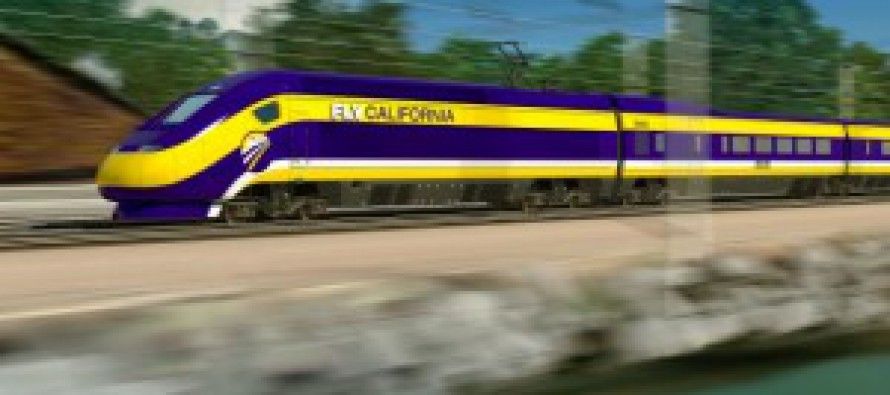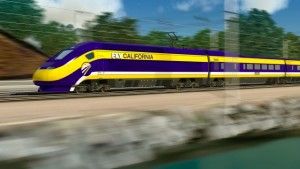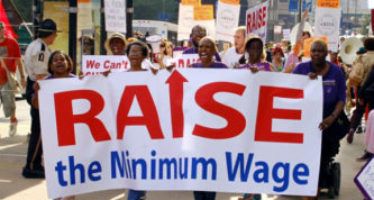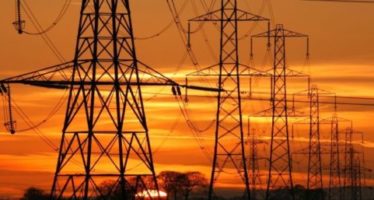CA Supreme Court decision not full victory for high-speed rail


On Wednesday, the California Supreme Court declined to review of an appellate Court decision regarding the project. The case commonly is referred to as “Tos/Fukuda/Kings County” after the county and two residents who sued to stop the project.
This meant the July 31 ruling of the 3rd Appellate District Court stands; and the California High-Speed Rail Authority, which runs the project, has until the time they file their second funding plan to comply with the law. They must finish all environmental work for a 300-mile segment and find the funds to finance the construction at that time.
As CalWatchdog.com wrote at the time, the appellate court:
“…overturned a decision last fall by Sacramento Superior Court Judge Michael Kenny.
“Kenny had ruled that the current funding plan, as approved by the California Legislature, did not follow the strictures of Proposition 1A, the 2008 initiative approving the bonds for the project.
“The appellate court instead agreed with California Attorney General Kamala Harris. Her office argued that the Legislature had the power to interpret the proper funding mechanisms for Prop. 1A, and the courts should let that process work itself out.”
The main result this week from the Supreme Court’s decision is that the project will continue condemning property under eminent domain and demolishing structures along the way of the train. It’s a definite moral victory for the California High-Speed Rail Authority, which runs the project – although not a complete victory.
Silence
However, the Supreme Court did not explain its silence regarding the project. By refusing to rule, the court did not say, “Good job, CHSRA. You are following the law.” There is no final stamp of approval.
The key now is the 3rd Appellate District Court’s earlier opinion, which read in part:
“[U]nder the Bond Act, bond funds cannot be committed and spent until the second and final funding plan is approved by the Authority and submitted to the Director of the Department of Finance and the Chairperson of the Joint Legislative Budget Committee, and an independent financial consultant prepares a report. …
“This latter report is particularly significant in that the independent consultant must certify that construction can be completed as proposed and is suitable for high-speed rail; the planned passenger train service will not require an operating subsidy; and upon completion, passenger service providers can begin using the tracks or stations.”
The “bond act” is Proposition 1A, which voters passed in 2008. It authorized $8.6 billion in bonds to fund the project.
On where the case stands after the Supreme Court decision, Mike Brady, lead counsel for Kings County and the two residents, said:
“The appellate court decision simply said that the trial court erred in rejecting the first funding plan which the appellate court said was meant to provide notice to the Legislature only, preliminary to a legislative appropriation. The appellate court said that the High-Speed Rail Authority could not use or spend Proposition 1A bond funds until it had gone through the rigorous requirements/procedures of the second funding plan.”
“Without the ability to spend Proposition 1A bond funds, the HSRA is still hamstrung. It is also important to remember that the appellate court itself said that the HSRA’s first funding plan was defective and deficient; those problems still exist and they will have to overcome them before the second plan can be approved.”
Most importantly, Brady said the CHSRA cannot access the Prop. 1A bond funds “until it goes through a rigorous procedure.” He promised of the court action, “We will be there to enforce those requirements.”
Nine legal actions
The case the Supreme Court just declined to hear is not the only one against the high-speed rail project.
According to the CHSRA’s Oct. 14 Monthly Meeting Agenda, nine legal actions are pending against the project, including a second part of the Tos/Fukuda/Kings County case (see list below).
Said Mike Brady, lead counsel for Tos/Fukuda/Kings County, “We will take the Authority to trial early 2015 on whether the high-speed rail system can meet the bond measure’s requirements” that voters approved. The requirements are that the train must run between Los Angeles and San Francisco in two hours and 40 minutes. “We think the evidence is very strong that it can’t.”
Litigation against the CHSRA, as listed in its Oct. 14 Monthly Meeting Agenda:
- John Tos; Aaron Fukuda and County of Kings v. California High Speed Rail Authority, Sacramento Superior Court Case No. 34-2011-00113919; (Court of Appeal, Third Appellate District, Case No. C075668)
- John Tos; Aaron Fukuda and County of Kings v. California High Speed Rail Authority; (Sacramento Superior Court Case No. 34-2011-00113919)
- Town of Atherton v. California High-Speed Rail Authority; (Court of Appeal, Third Appellate District, Case No. C070877)
- CHSRA Validation Action; Sacramento Superior Court Case No. 34-2013-00140689; (Court of Appeal, Third Appellate District, Case No. C075668)
- Before the Surface Transportation Board; Finance Docket No. 35724 (SUB No. 1); CHSRA-Construction Exemption
- Coffee-Brimhall LLC v. California High-Speed Rail Authority; (Sacramento Superior Court Case No. 34-2014-80001859)
- County of Kings v. California High-Speed Rail Authority; (Sacramento Superior Court Case No. 34-2014-80001861)
- County of Kern v. California High-Speed Rail Authority; (Sacramento Superior Court Case No. 34-2014-80001863)
- First Free Baptist Church of Bakersfield v. California High-Speed Rail Authority; (Sacramento Superior Court Case No. 34-2014-80001864)
- Dignity Health v. California High-Speed Rail Authority; (Sacramento Superior Court Case No. 34-2014-80001865)
- City of Bakersfield v. California High-Speed Rail Authority; (Sacramento Superior Court Case No. 34-2014-80001866)
- City of Shafter v. California High-Speed Rail Authority; (Sacramento Superior Court Case No. 34-2014-80001908)
- TRANSPORTATION SOLUTIONS DEFENSE AND EDUCATION FUND v. California Air Resources Board and CHSRA as a real party in interest; (Fresno Superior Court Case No. 14CECG01788)
Kathy Hamilton is the Ralph Nader of high-speed rail, continually uncovering hidden aspects of the project and revealing them to the public. She started writing in order to tell local communities how the project affects them and her reach grew statewide. She has written more than 225 articles on high-speed rail and attended hundreds of state and local meetings. She is a board member of the Community Coalition on High-Speed Rail; has testified at government hearings; has provided public testimony and court declarations on public records act requests; has given public testimony; and has provided transcripts for the validation of court cases.
Related Articles
Minimum wage debate heats up in Los Angeles
What if three different studies on the effects of a minimum wage increase in Los Angeles each came up with
Is lack of competition leading to costly electricity glut?
SACRAMENTO – A top California utility official once quipped that he was one of the few executives in the country
Elites and People Divided on Taxes
APRIL 25, 2011 By WAYNE LUSVARDI Only 9 percent of respondents to a new Los Angeles Times-USC Dornsife opinion poll




